Chase Stokes is Hollywood’s New Kid on the Block
VMAN’s newest Digital Cover star and Outer Banks actor speaks with Jeremy Pope about how his real-life became as wild as the Netflix thriller.

After a yearlong hiatus of IRL human connection and adventure, the world became nostalgic for a pre-COVID past, faced the present adjustments to the new normal, and anxiously anticipated a future of uncertainty and transition. With that, society heavily satiated their daily craving of camaraderie, cheap thrills, and shenanigans in the world of entertainment.
Netflix’s Outer Banks—or OBX, as it’s known to throngs of fans—hit a particular sweet spot. The high-octane dramedy stars lead Chase Stokes as the brazen, local surfer boy John B., along with the wealthy upper echelon “Kooks” and working-class “Pogues.” The show is packed with literal ride-or-die friendships, first loves, significant losses, and to boot, a treasure hunt to uncover $400 million dollars worth of stolen gold. The series kept the world at the edge of their seats.
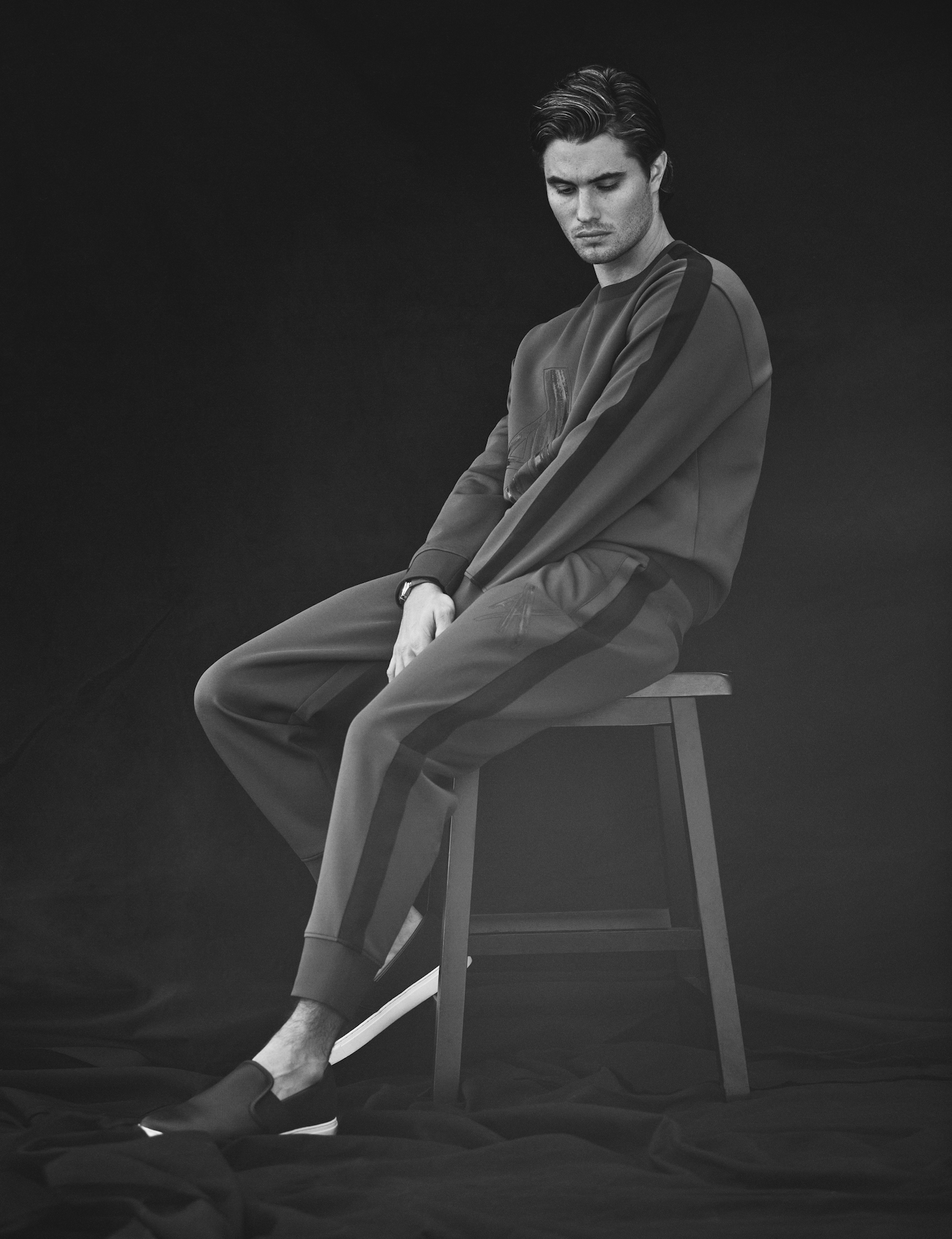
Speaking on the eve of OBX season two’s release this summer, Orlando-raised Stokes plunges deep into discussion with his high school pal, and fellow Netflix star, Jeremy Pope (Pose, Ryan Murphy’s Hollywood). The pair delve into what fans can expect for John B. and the gang for season two out July 30th, how the relationship between Chase and his co-star Madelyn Cline has shifted from on-screen into real life, and taps into his personal nirvana as a tool for mental health amid the throes of newfound fame and life’s uncertainties.
Jeremy Pope: For people who don’t know us, we went to high school together and graduated in the same class. Go Wolves! What is something you wish you knew in high school about your future?
Chase Stokes: I wish that I was okay with the unknown. This career path, I think more times than not, forces you to go internal. There’s so much up and down and judgment in places that you’re kind of not really expecting. As I’ve ventured into this career of entertainment, it’s heightened that at times. So, just being at peace with [your identity], not allowing your own self-destruction to be a definitive factor of who you are, and not being defined by the environment that you’re in.
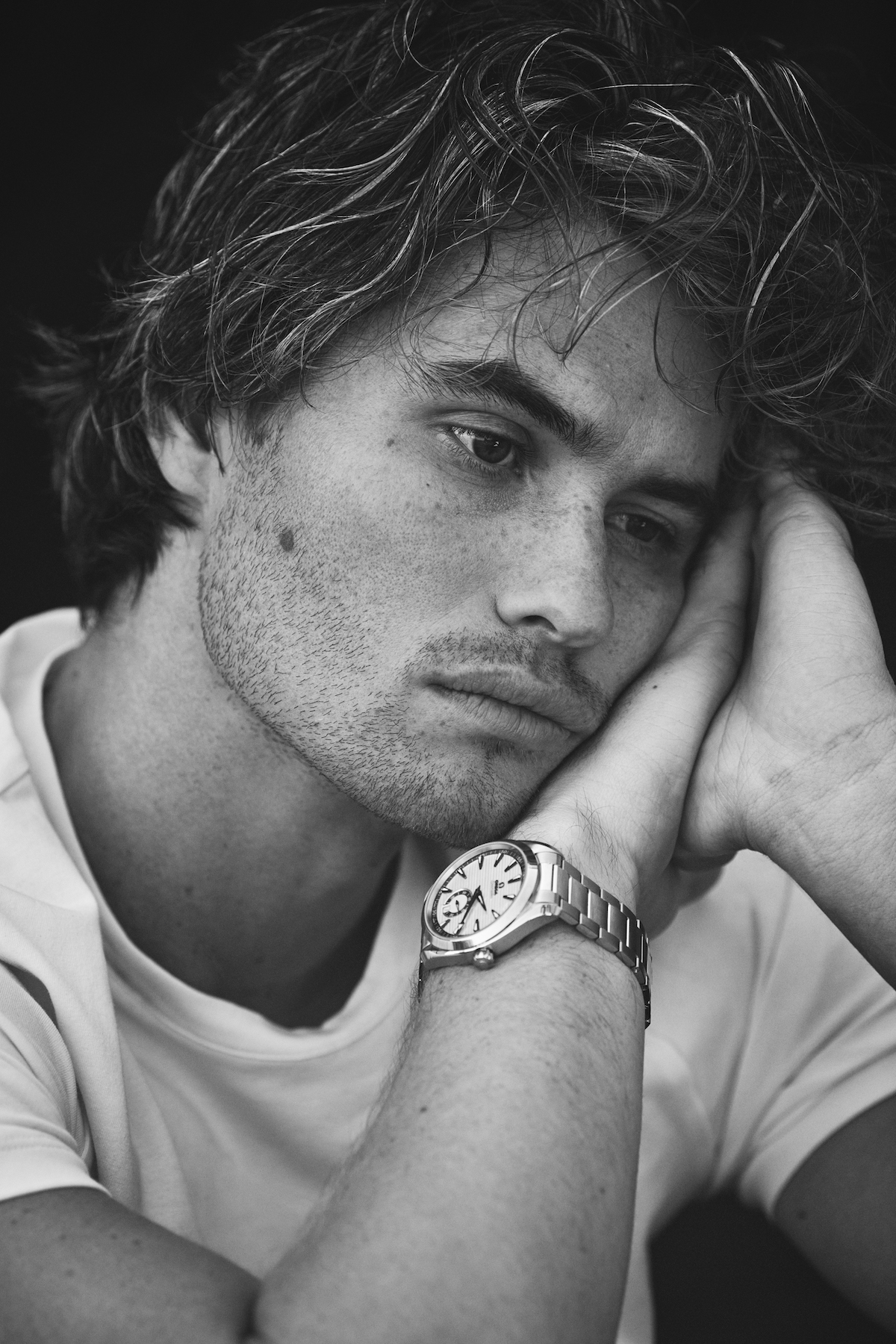
JP: We both had shows come out during a pandemic and a lot of attention was brought your way very, very fast. How has your life changed for better or for worse, and what does that mean to you personally?
CS: I think the pros of being older—and when I say older, being 28 years old—I had enough time to sit back and watch it happen to other people. I watched them make mistakes or thrive and find that hunger, but it never fully prepares you.
JP: I want to talk about OBX: we’re in season two. What are you most excited about sharing with us for this upcoming season?
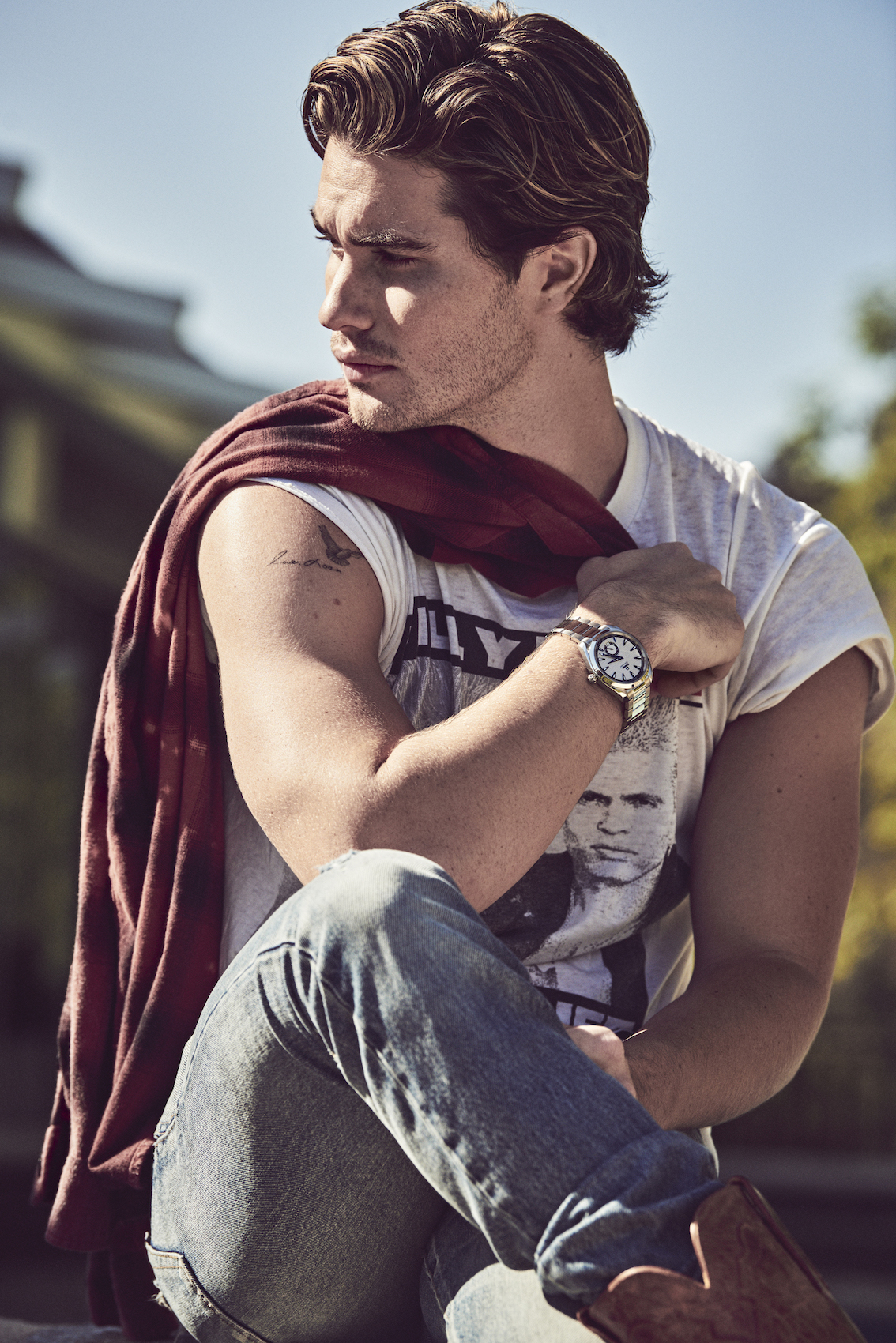
CS: Season two just has a different energy to it. I would describe it as controlled chaos because, obviously, we worked in confined spaces with safety—but it’s a chaotic experience. You’re dealing with a 16-year-old kid who’s wanted for murder, has fled the country, and is now en route, in his mind, to where the gold his father’s been chasing is. There’s a relentless mentality that he has and is not going to stop now, because he’s closer than he’s ever been. I just think it’s high emotions and a lot more of the comedy that I think a lot of people love. We definitely don’t skip out on the bullshit of the Pogues.
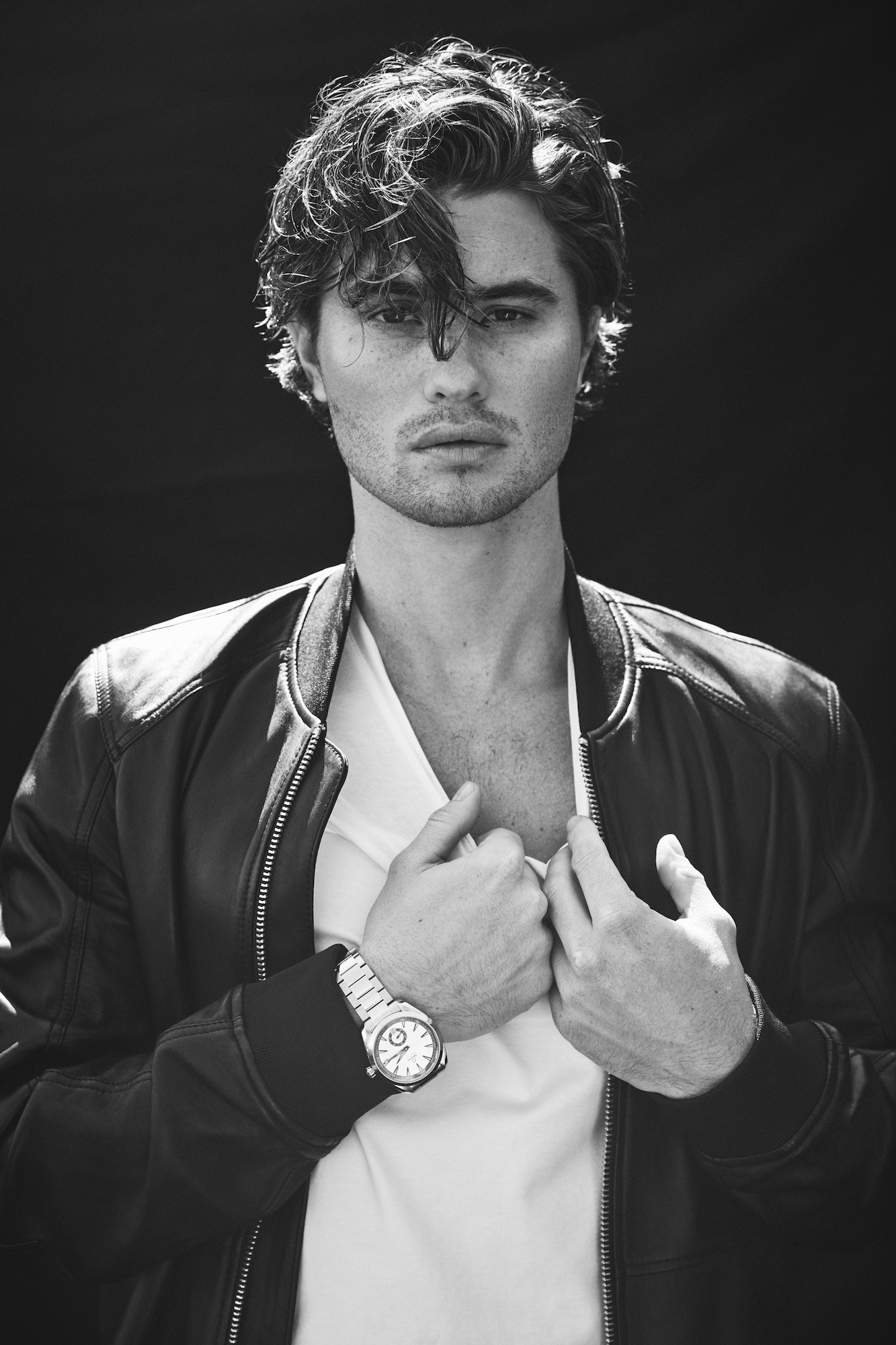
JP: Not only did you shoot in Barbados, but you were shooting during the pandemic. The show I was working on [at the time] got shut down because of a COVID scare. Talk to me about your experience shooting during COVID and trying to push through. What was that like?
CS: I think the initial reaction when we decided to go back during the height of the second spike of COVID was super daunting. Trying to process very rarely leaving an apartment, to then going back into a working environment was a full-on just anxiety attack. [The cast] understood the weight on our shoulders, so we decided to move into an apartment complex that was small, but safe. We were one of the only shows in the Netflix banner that didn’t have a major COVID shutdown.
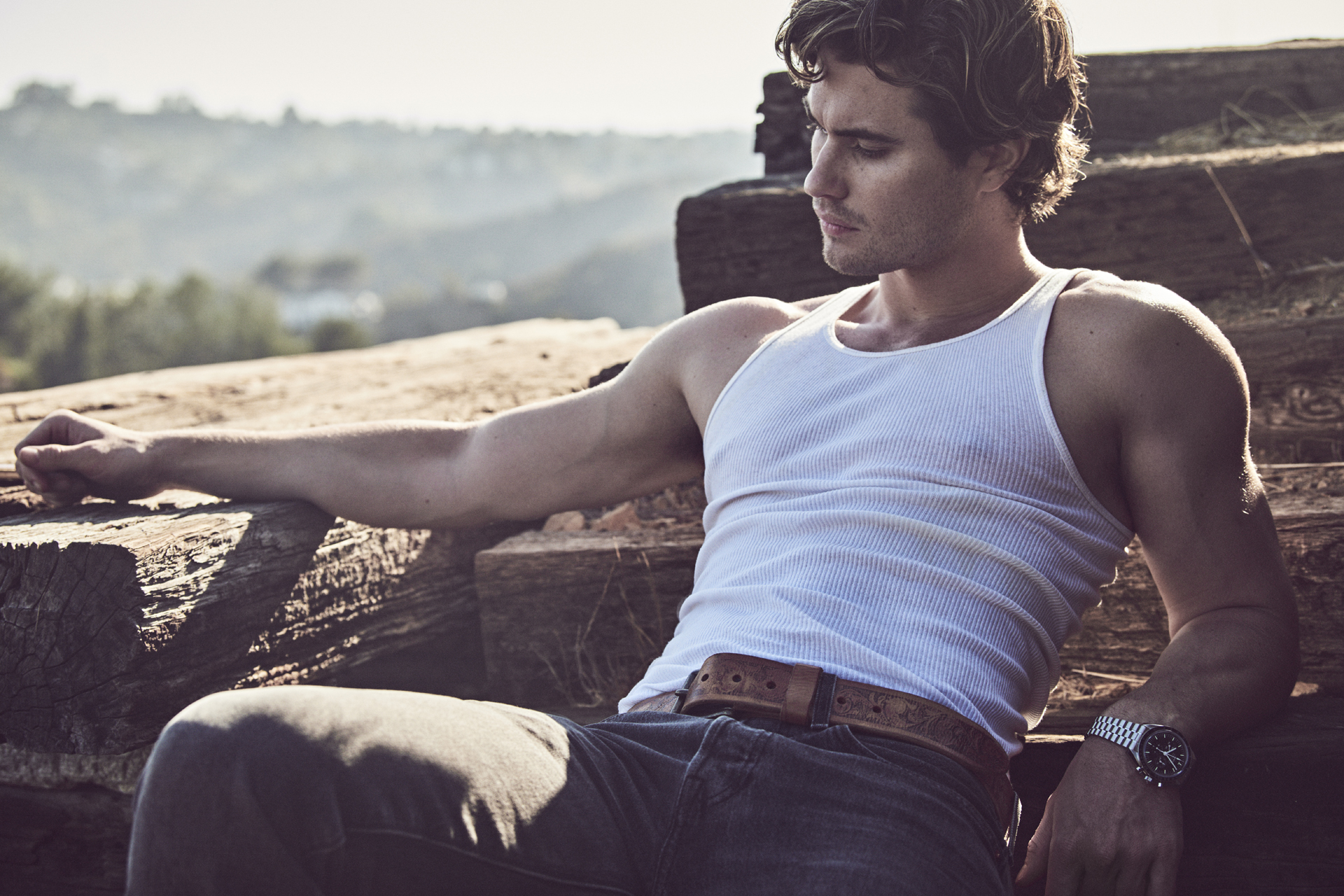
Barbados was on a full lockdown. Auntie Mia, the prime minister of Barbados, made it work. I met some of the best people in my life there. They dropped everything to make sure that we could have the locations we needed and were so warm and welcoming. I didn’t know what to expect, and now I want to go back forever. I still stay in touch with quite a few people from our crew that are locals in Barbados.
We were isolated throughout an eight-month period and didn’t get to see our families while doing these deep dives into our characters. We would rely on and check in with each other— sometimes it would end up with a couple of drinks, other times it was waterworks.
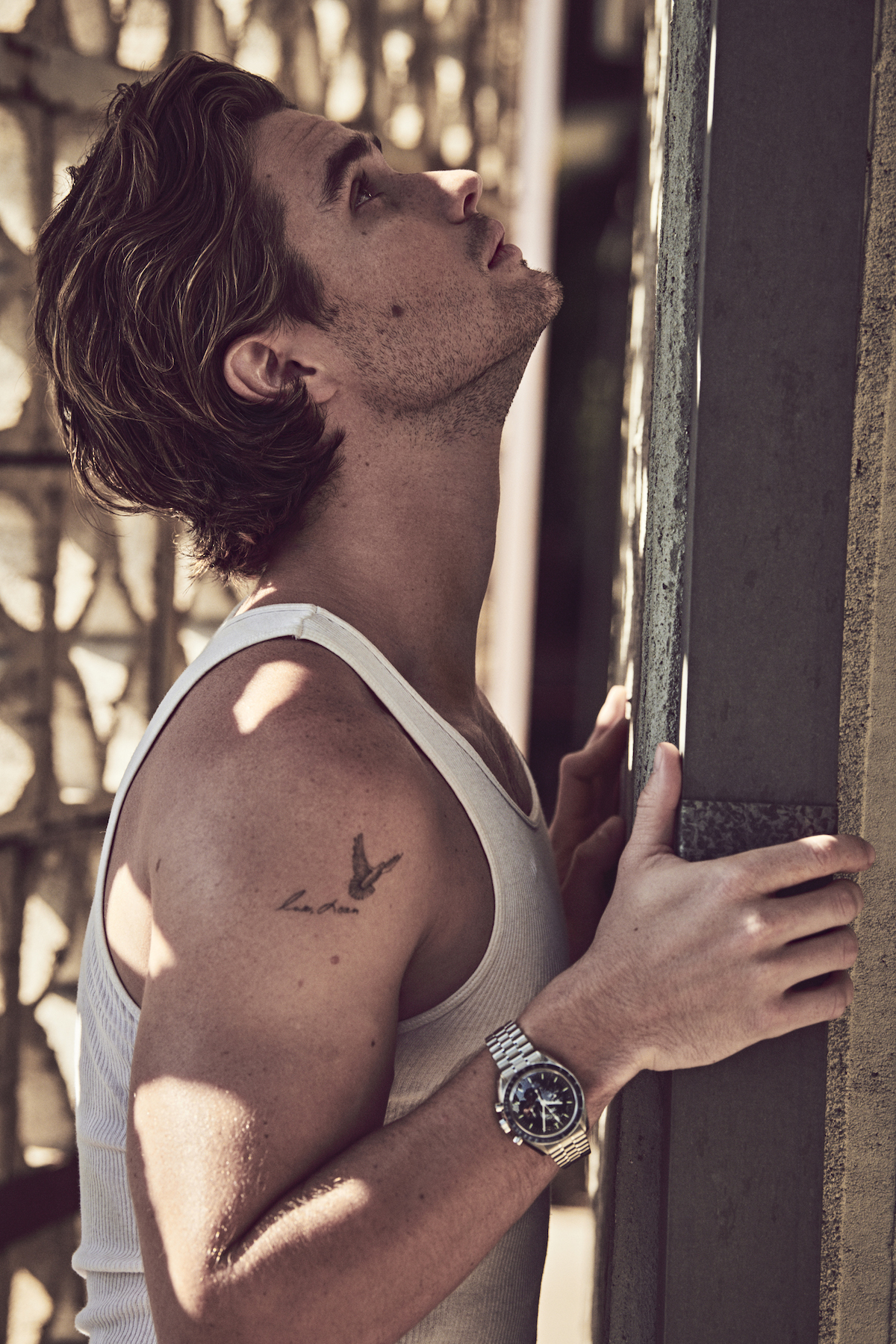
JP: Sarah and John B. have such amazing chemistry on-screen—the characters balance each other in a yin and yang way. How does the dynamic of your relationship with Madelyn Cline work in real life?
CS: As a character, Sarah is going through a lot of new discoveries about herself. It’s going to be very interesting to see these two people who have only had this experience of being young and in love and watching everything burn very fast. The honeymoon phase is over. They have a lot of things that they have to actually face. Are [John B. and Sarah] going to be wise beyond their years and make choices that are responsible? Are Maddie and I going to pull from that? Or are they going to be traditional 16-year-olds who are going to make mistakes, challenge each other, and sort of butt heads in the ways that they are? They’ve grown up in two completely different classes, up until two days before the final episode.
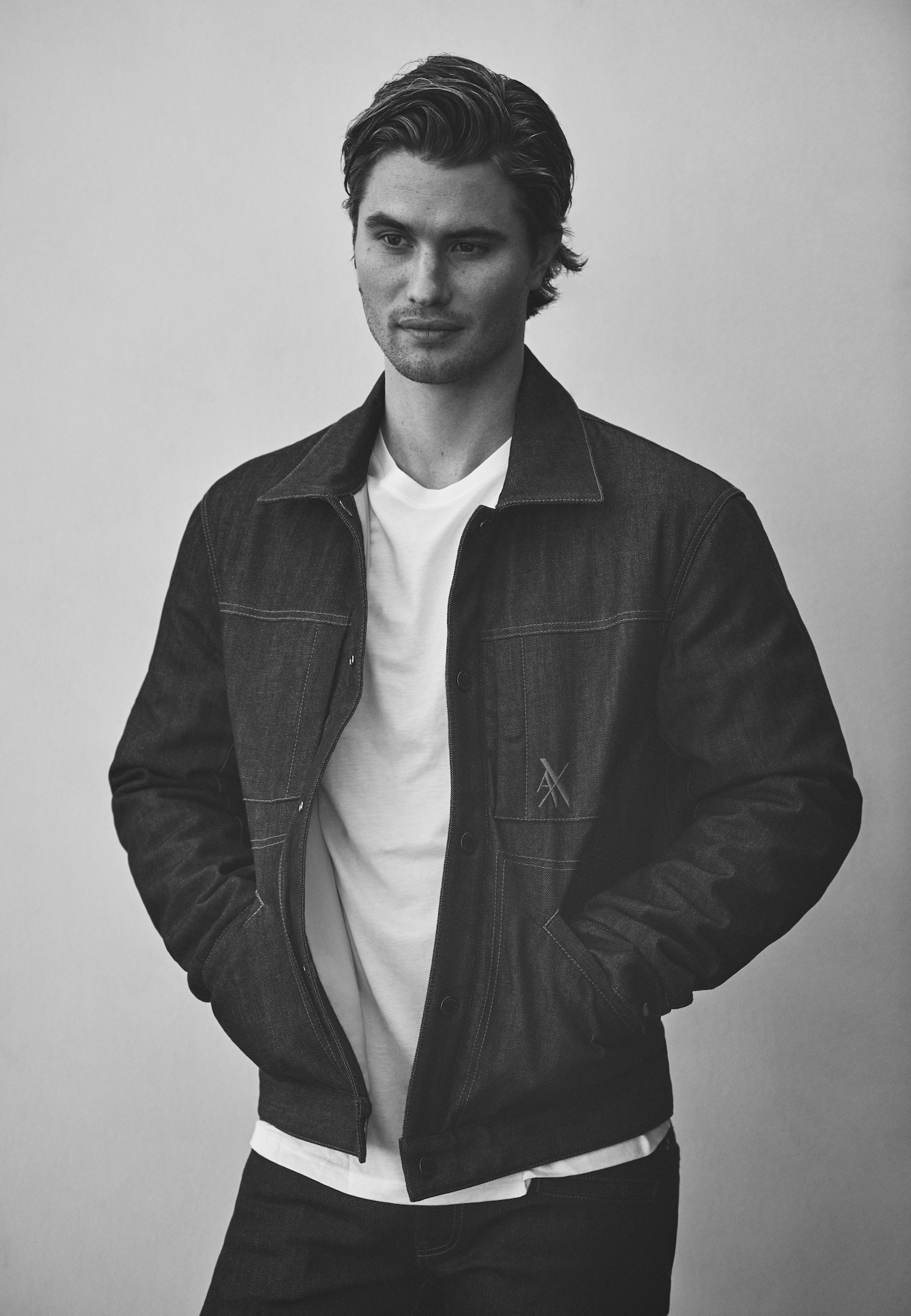
[In real life] we have a very healthy relationship because it started with the work first. We didn’t really have time to even comprehend the question: Is there something here? That was all after the fact. For season two, as soon as we get to work, we’ll support each other. We’ll be scene partners and take care of each other when it’s an emotional moment. But it doesn’t mean that if I don’t believe you, that I’m not going to call you out and she holds me to the same standard. Then, as soon as we get back to our trailers and we’re taking off our makeup and character clothes, it’s like that world disappears. I’m very thankful for her and the journey we’re on, it’s been awesome.
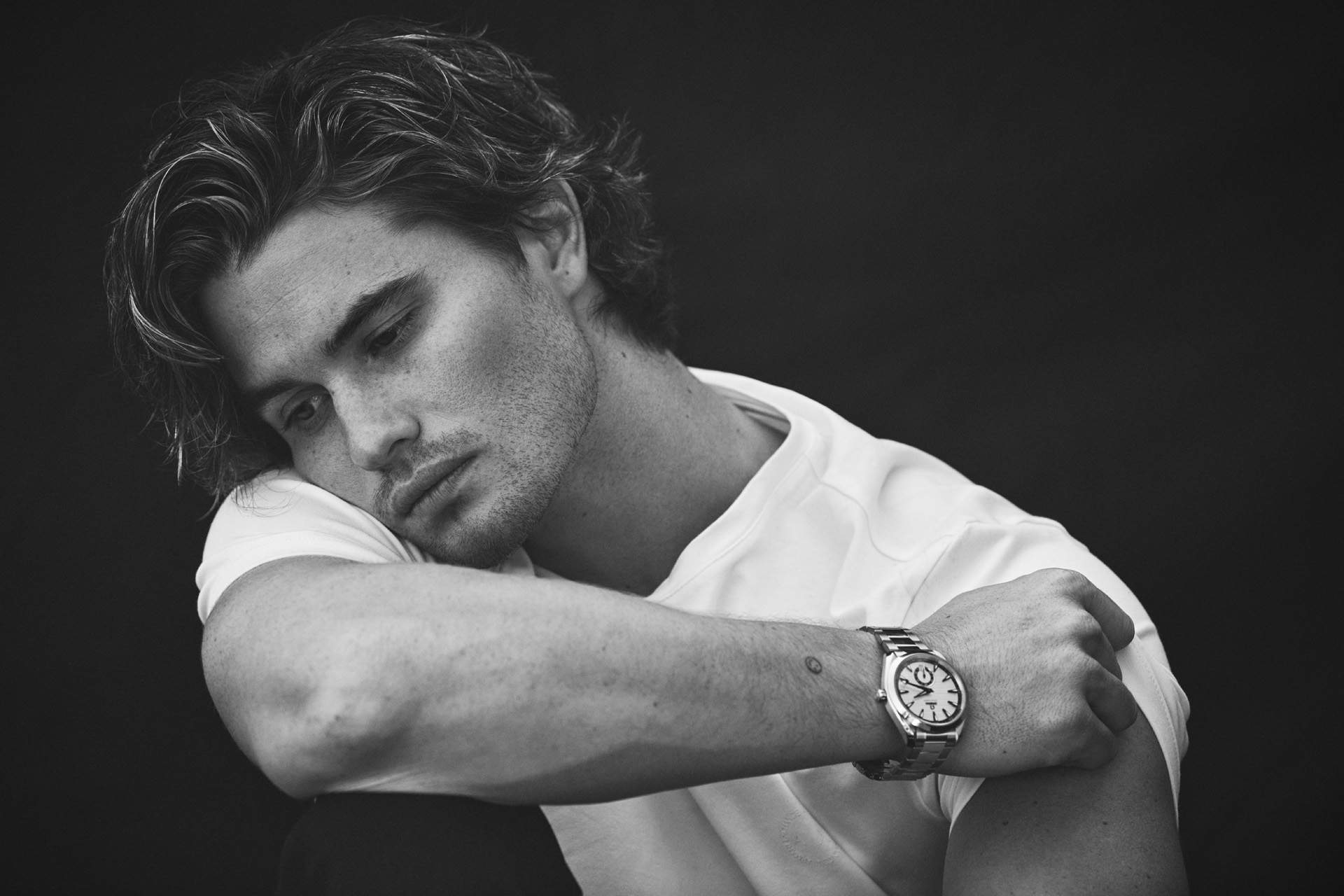
JP: You’re a big advocate for mental health and therapy. How do you balance work, being an artist, and navigating your mental health, and being aware of what you need?
CS: Coming out of the pandemic, there’s a lot of uncertainty and transition. There’s a lot of people who are dealing with a new normal, and nobody really knows how to attack that. For me, I need ten minutes bare minimum to set my intention and ask: ‘What do you want to do with yourself just today?’ I’ve been big on having what I like to call an ego-death; that simply is me not allowing myself to think any further than just the day. If I allow myself to think any further ahead, I know for my own mental health, it’ll drive me through the absolute roof and then I’ll end up in the fetal position. And I just don’t want that.
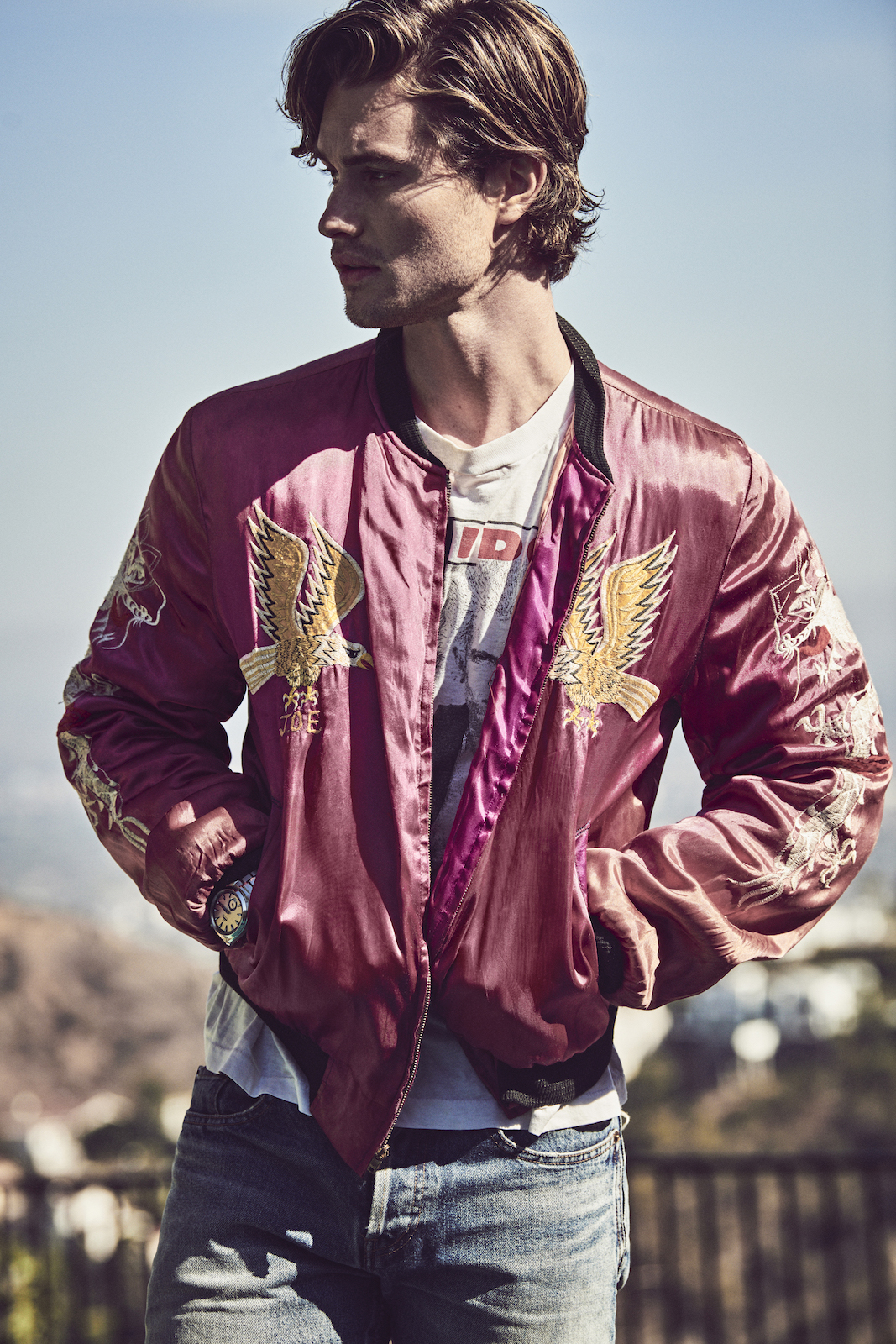
JP: Often we’re always thinking about what’s next, right? And we’re not always guaranteed a “next.” So, it’s important to have those moments because I do think it’s easy to get off track.
CS: There’s a phrase that I always say—and I’m trying my best not to tattoo it somewhere on my body—it’s “I am just beginning.” Society is so bad at telling everyone, “You’re 25, it’s too late; if you’re 30 years old, you’re too far gone, you can’t start.” I think—especially when it comes to dealing with our own self-doubt or any form of mental health, we’re always just beginning. I’ve dealt with a family of addicts who have serious addictions, and I talked to them a lot about that. Every day you are just beginning, there is no “bad time’’ or “too late to start.” It’s been something that has saved me—even right now.
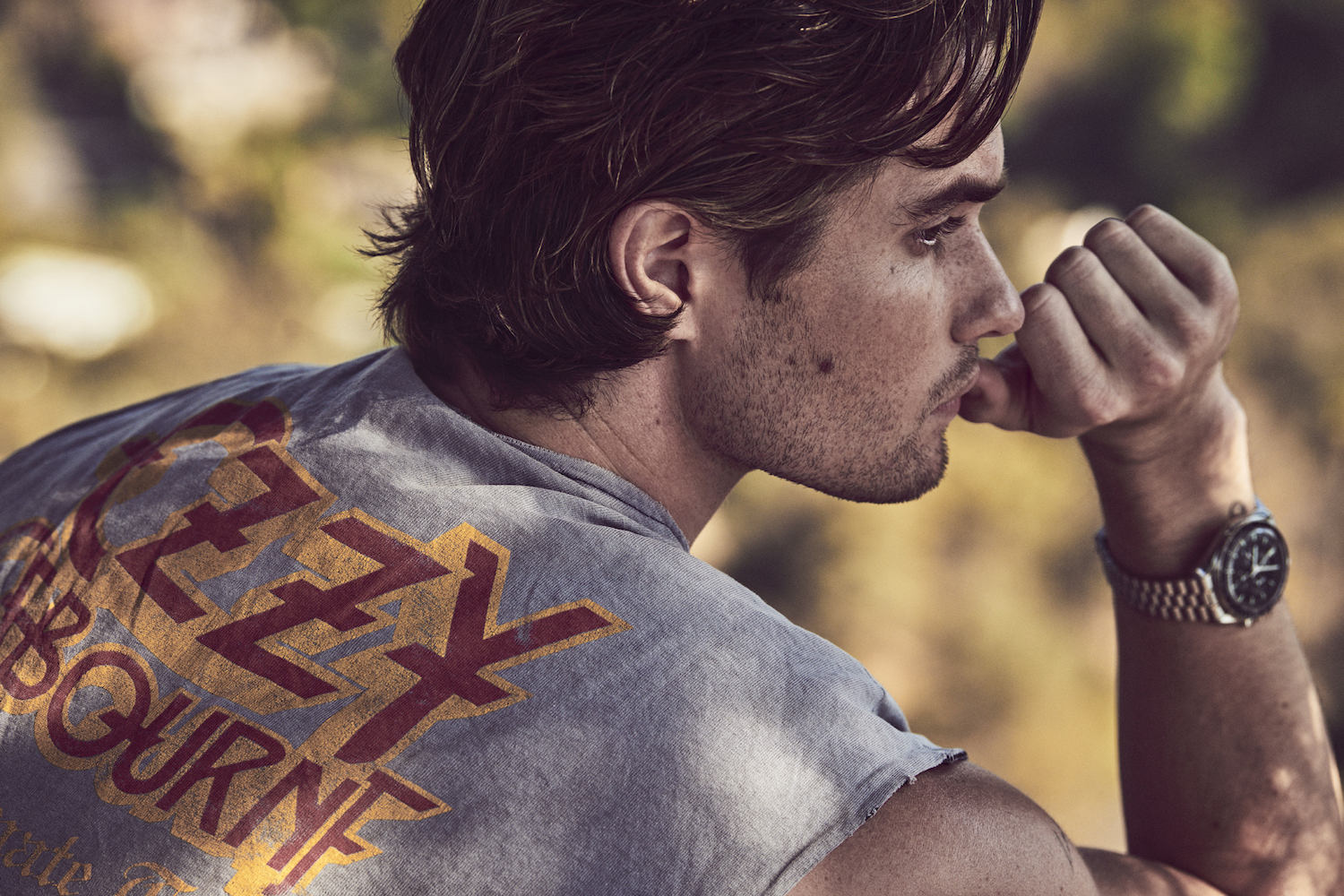
JP: You’ve always been this grounded, loving person. I think, for me, being in a huge high school with a graduating class of around 1,400 people, dealing with my sexuality and not being out at the time, I was learning to love theater and you were doing lacrosse. We were polar opposites, but I remember you would always find space and time to check in with me. And I want you to know that was very special to me that you saw me. I just appreciate you always being an advocate for positivity, for love, for acceptance, for further learning about yourself, and loving yourself. That is one thing that has always been true about you. I’m always wishing you well; I’m always wishing you love. I will happily run any fan account that you need at any given time.
CS: That warms my heart. I love you, you know that. To watch you go from taking the risk to going to New York right after high school and put your heart on your sleeve and wear it courageously throughout the years and not be apologetic is something that I’ve always looked up to.
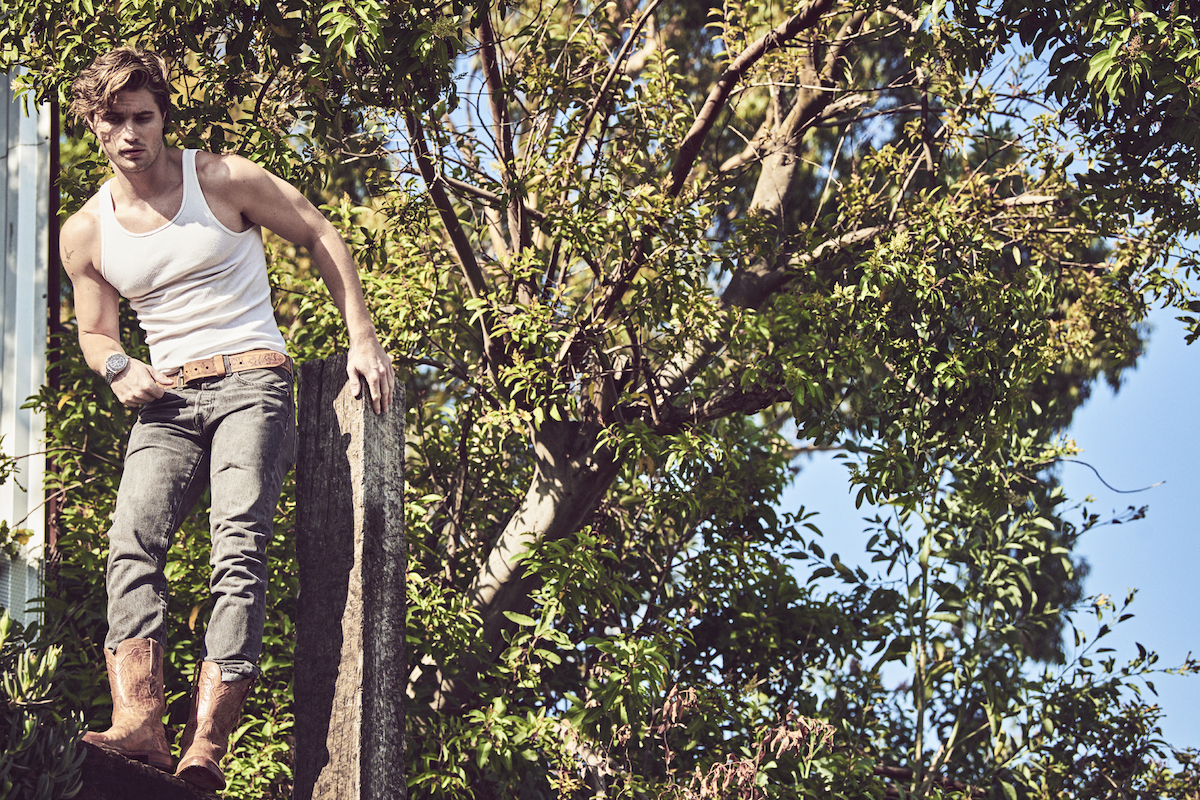
JP: I think we have a unique relationship and shared experience that I don’t have with a lot of people. You knew me back in 2006. And to know that the support was real then and so many years later, is still there— it gives me hope that you can find some A-1’s that’ll ride and die for you, and will have your back no matter if you’re at the peak of your career or just beginning. That is something that I’m excited to share with people because it’s beautiful. We are just beginning.
Discover More
